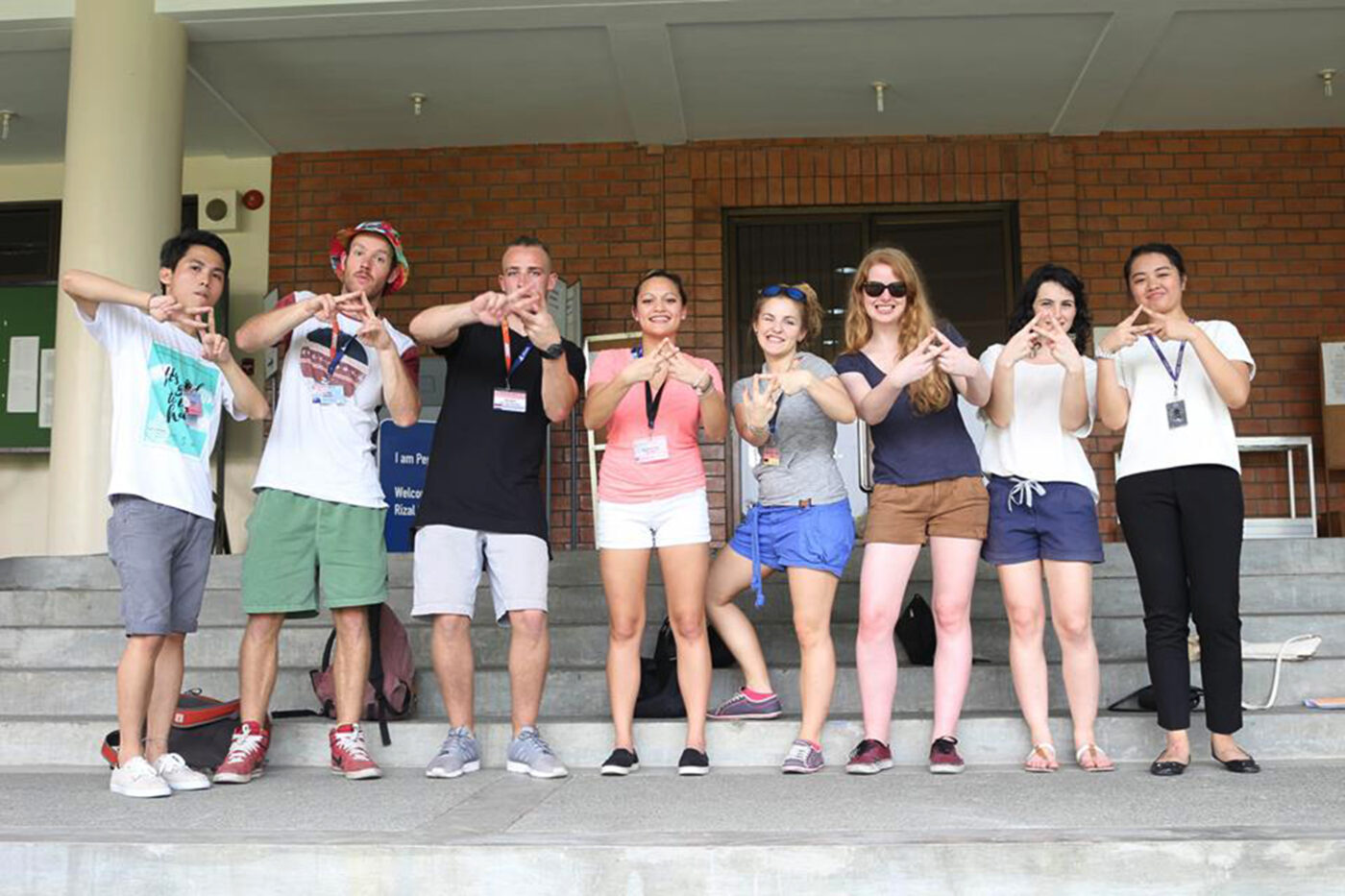IN LINE with the Association of Southeast Asian Nation (ASEAN) Integration, Ateneo is called to attract more students to consider the ASEAN countries for their international student exchange opportunities, according to Student Mobility Coordinator Rowena Palacios.
Since its establishment in 1967, ASEAN has been driven to come up with ways on developing the economic status of the ten member countries including the Philippines.
In December 31, 2015, the ASEAN, formally integrated itself into a single competent economic region.
The integration is fueled by the agreement to create an ASEAN Economic Community aimed to transform the whole ASEAN region into a single free-flowing market with economic standards keep up with the global economy.
“I think in general, when our students look out to the rest of the world, they don’t pay a lot of attention to other ASEAN nations and I’m not sure why that is, but that is something we have to improve,” Palacios said.
As a response to better mobility, Assistant to the Vice President for University and Global Relations Teresa Santos said, “There is an effort from the university and from multilateral platforms such as the ASEAN University Network (AUN), of which we are a part, to promote mobility within ASEAN.”
In addition, Palacios said that there has already been an existing AUN scholarship grants for Ateneans to study in an ASEAN university except Singapore for their Junior Term Abroad.
In terms of number of inbound students from the ASEAN region, Santos said that there have been improvements.
“Previously we used to have mostly European students. Last year, about a third of inbound students were from ASEAN partner universities,” Santos said.
Political Science Instructor Arjan Aguirre remarks that the presence of students from ASEAN universities in the Ateneo would be beneficial in promoting the ASEAN universities.
“If we will see more students in the Southeast Asian Nations coming here in the Ateneo, incentive na rin to grow. ‘Pag nakita ng Ateneans na okay pala ‘yung mga students from other ASEAN regions, ma-eexpose sila,” (If we will see more students in the Southeast Asian Nations coming here in the Ateneo, it will be also an incentive to grow. Once Ateneans see that students from other ASEAN regions are doing okay, they will be exposed.)
Palacios said that it is important for the Ateneo to commence talks with universities within ASEAN to improve student and faculty mobility.
“It is not about the Philippines competing with [other ASEAN countries]. It is about all of the ASEAN countries cooperating with each other so that, as a group, they can compete,” Palacios clarified.
To better prepare the students for the impact of the said integration, Santos said that Ateneo is trying to incorporate more relevant content in its curriculum and create better linkages with other Higher Education Institutions and industry in the ASEAN.
“Such steps will deepen our understanding of other member countries, achieve better networks and connections to enhance capacity to better engage in the region. Ultimately, this should translate to a stronger ability as a region to contribute to global advancement,” said Santos.
On global relations
According to Palacios, Ateneo had been moving towards internationalization even before the ASEAN integration.
“ASEAN is external to us. ASEAN integration is created by the ASEAN body. So, even independently of that, Ateneo has already been creating a lot of enabling structures for internationalization,” said Palacios.
These enabling structures include, but are not limited to, student-faculty mobility, academic research collaborations, and the possibility of a credit transfer system.
According to Santos, the core curriculum revision and academic calendar shift is partly a response to the integration but is also a response to the larger reality of globalization.
In line with this, Santos said that the core revision is initiated with hopes of developing graduate attributes needed in the 21st century.
According to Associate Dean for Academic Affairs Josefina Hofileña, adopting international frameworks will allow Ateneo programs to be recognized in other countries as meeting the same competencies, such that there is a recognition of degrees within ASEAN.
Furthermore, she said that the core curriculum is still in the process of finalization.
“All of this, the new core, and the revised programs are for implementation in school year 2018 to 2019 and will affect the incoming freshmen [of that school year],” said Hofileña.
Meanwhile, Santos noted that the academic calendar shift is meant to allow better engagement with universities in the region and overseas due to a more aligned schedule.
In addition to this, Aguirre also pointed out that this initiative serves as Ateneo’s response to the Jesuit tradition of educational excellence.
“We are the leading Jesuit institution here in Asia… Ateneo has to live up to this tradition, principle of excellence,” he said.
According to Aguirre, the Ateneo realizes its role, not just in nation-building, but also as an instrument of the Church.
“To spread Roman Catholic education with liberal sensibilities, that I think is the best way to describe the response itself of the university when it comes to ASEAN integration and [globalization] of states,” he said.
Ateneo’s contribution
According to Santos, there is still a lot of work to be done in response to the integration.
She said that there is a need for Higher Education Institutes (HEI) in the ASEAN to align themselves to some basic standards to usher a better engagement and movements across member countries.
“It is important to point out that we’re trying to harmonize rather than homogenize HEIs – we still strive to retain our own identity while trying to meet some basic standards,” she added.
Additionally, Santos emphasized that this is also a way for us to identify our niche and strengthen our regional position.
Palacios added that the possibility of research exchange is still being explored by the Ateneo.
“Several networks of universities have been created within the ASEAN for the purpose of exploring not only the student-faculty mobility but other forms of collaboration such as, for example, research collaborations among faculty members and researchers such as for example the possibility of joint-degree collaborations,” she said.
“In terms of Ateneo, this is exploratory but this is what’s happening around ASEAN,” Palacios added.







